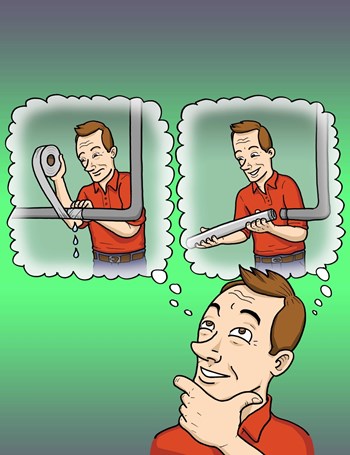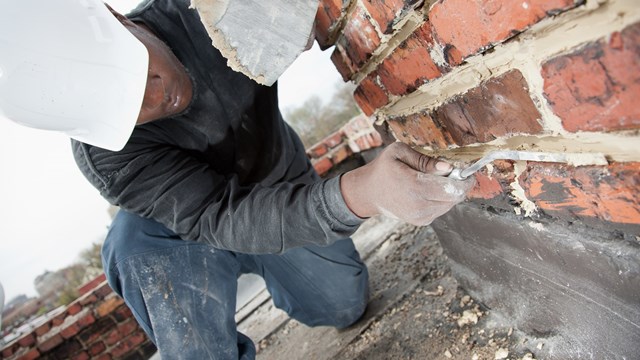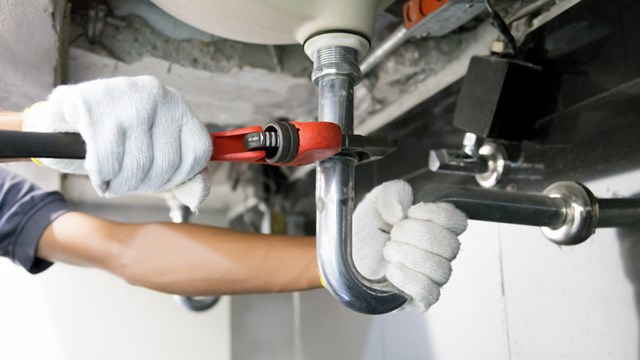
It's a common enough story: the condominium was relatively new, but from the start its board of directors was stingy with maintenance and repair dollars. Then the recession struck, and a large percentage of unpaid maintenance fees spiked.
After several years of neglected physical facilities, half the condo's elevators weren’t working. Unpainted interior hallways and uncleaned carpeting and tile encouraged mold and mildew growth. Utility bills went unpaid for so long that the electric company threatened to cut off the power, and garbage collection was sporadic. Due to mismanaged collections and finances, the community was on the verge of bankruptcy.
In such a situation, “The board has to put on some pants and pass a special assessment to take care of things,” says Maria C. Upthegrove, manager of Paradise Pointe Condominium Association, Inc., near Cutler Bay in southwest Miami-Dade County. Not fixing things for which money isn’t available “is not an unreasonable position,” she says, “but that doesn’t relieve the board of liability.”
Liability also concerns Jonathan Louis, chief executive officer of American Management Group, LLC, in Pembroke Pines. “When doing upgrades, replacement, or repairs, prolonging something that could affect life safety is never an option,” he says. “A board does not want to be found grossly negligent or not fulfilling its fiduciary responsibility. If that happens, they lose some of their shield with respect to liability.”
Absolute Essentials
At the top of everyone’s maintenance list should be life-safety items for which code violations could prompt steep fines from a government inspector, or even closure of a building. Steven Cohen, vice president for operations at A&N Management, Inc., in Boca Raton says this category includes elevators, fire extinguishers, sprinkler systems, smoke alarms, carbon monoxide detectors, and painting of curb corners to meet fire-marshal requirements. “All must receive annual maintenance,” he says.
“In Florida, roof repairs are always an issue,” says Cohen. “Roof warranties demand that certain criteria be met. If damaged tiles, fascia, soffits, and underlayment [felt] are not repaired, that could affect the warranty.”
Among an abundance of annual preventive-maintenance issues, Cohen lists air-conditioning compressors, garage-door tracks, the thresholds of sliding glass doors that require lubrication to maintain a tight seal, and hairline stucco cracks that need annual caulking.
“The closer you are to the coast, the more intense your annual assessment of metalwork such as aluminum mailboxes and balcony-railing pins has to be,” Cohen says. “In garages, constant attack by the elements affects the integrity of the concrete and rebar. That can lead to major costly problems if it’s neglected.”
Semi-annual inspections of the building structure are highly desirable, says Jeffrey Stein, chief engineer at Pinnacle Condominium in Sunny Isles Beach, which is managed by American Management Group. “We look to identify areas in the building structure where we see delamination, pitting, spalling, and cracks, which are typical of exposure to the environment and eventually will cause swelling and rust on reinforcing bars. If left unaddressed, repair could become a larger expense down the road.
“We also look for compression, which could be signs of a major structural issue in columns, footers, and joints.”
Stein also says generators need preventive maintenance throughout the year and an annual load test to ensure that they will run flawlessly in an emergency.
Where Water Resides
Stein recommends at least annual maintenance of cooling towers and HVAC (heating, ventilation and cooling) systems, including water treatment to control fouling, microbes, scaling and corrosion.
“The fire-sprinkler system is another major maintenance component requiring annual attention,” adds Kristopher Powell, Pinnacle Condominium’s property manager. This includes piping, connections, heads, panels, pumps, etc. “When a sprinkler head fails, the damage to the association’s common elements can be costly,” he notes.
“Water leaks are the leading cause of damage in condominiums,” Powell says. “Most leaks run between walls, underground, and/or in areas that are not readily visible. Higher than normal bills are an easy way to identify an impending maintenance crisis and once identified should never be ignored and always investigated immediately.”
Cohen cites a rapid decrease in the water level of a swimming pool, suggesting a leak in the pool, pump, or piping system, as “an issue you should never put off even if it involves a leak-detection company and many thousands of dollars.”
Raised sidewalks, water bubbling on the lawn, and spidering around storm drains may disclose underlying problems with storm-water and fresh-water lines needing prompt attention.
In addition, he says, “many irrigation systems draw water from retention ponds that take their mineral content from the surrounding ground, causing discoloration at least, and sometimes accelerated rusting and concrete deterioration. You want to catch those problems before they become serious. The minerals can cause a chemical reaction, and you need a chemical reaction to remove them. Doing that is costly.”
What Can Be Deferred
Upthegrove says scheduled maintenance items that can be put off for a while if the budget won’t cover them include paint, landscaping improvements, and carpeting replacement.
An association with a reserve study and a reserve budget based on that study should have the money, but if it isn’t available such items can be postponed for a while or completed in stages over a period of several years. “You might have five roads and decide to pave one a year, or pave a large parking area at the clubhouse in thirds,” Cohen says.
Even if the reserves are properly funded, they don’t cover certain emergencies, such as a lightning strike that blows up the air-conditioning compressor. “Most associations don’t have an emergency fund. Be realistic and budget for contingencies,” Upthegrove advises.
“If an amenity such as a pool or playground needs major refurbishing, some associations choose to close it down until they have the funds to do the work,” she says. “One association with a clubhouse closed it down for a year and a half. The pool deck was cracked and some tiles popped out. The insurance company said, ‘You can’t have people here. We’re not going to cover you.”
Powell and Stein note that replacement of HVAC components such as air handlers, compressors, and piping can be extended several years past their useful life if they are properly maintained by cleaning the air handlers’ coils and drip pans, and treating the water.
The life of domestic water pumps and motors can be prolonged by having multiple units and setting them to run on an alternating basis. Thus, if a pump motor is made to last 20 years, alternating between pumps may yield another five to 10 years from each motor. “You can also prolong the system by installing VFDs (variable-frequency drives),” Powell and Stein note. “However, this is a costly expense. The return on investment will vary from building to building.”
Upgrading the lighting with more energy-efficient products should be addressed annually, Powell says, but to cut costs such a program could be extended over several years. Ask your electric company whether it provides a free energy survey report for a condominium, he suggests. If so, have such a survey done annually and compare each year’s results to past years to track your energy savings.
Cohen cautions that a board must present the ramifications of its decision to defer repairs and maintenance to the community. “If they do not disclose and allow the assets to deteriorate, they could be responsible as a board and individually. For example, suppose the board says they don’t want to raise the assessment in 2013 so they won’t put any money in the reserves, and they want the community to vote on that. If they don’t also say that three to five years out they will need to put a special assessment through to pave the roads, they will breach their fiduciary responsibility by not disclosing that.”
Does Waiting Raise Costs?
Inflation and improvements in technology are commonly believed to increase the cost of a deferred improvement or delayed maintenance above what it would be today, but that isn’t always true, says Cohen.
“We went through a housing recesssion,” he notes. “Compared to seven years ago, we have saved 25 percent on labor for repairs and maintenance in 2011 and 2012, and material costs also went down on roofing, sheetrock, and paint.
“However, getting concrete delivered in mass quantities anywhere on the planet is more costly today because China is building like crazy, especially highways, Many of our communities have put off road repairs.”
Seeking Professional Guidance
When deciding which repair and maintenance projects require immediate attention and which can be deferred, “boards need to rely on the experts, someone qualified or certified or both,” Louis says.
“The ideal,” Upthegrove says, “would be an advisory committee to the board” if professionals who own in a community are willing to help. For example, one of her association’s board members has a bachelor’s degree in construction and is studying for a master’s degree in building administration. “He’s a foreman with a large construction company. He deals with plans and permits,” she says. “He has the experience and knowledge. He’s a tremendous asset to us. We reached out to him and he was willing to give us the benefit of his expertise without charge.”
In some situations, experts in state and local government agencies may be available to assist at little or no cost, Cohen notes, such as extension agents for landscaping, forestry management, and pest infestations.
Cohen says a full-service management company should have in-house experts in certain disciplines, plus “a cadre of expertise that you develop over time, people we call upon who are licensed and appropriately educated” to deal with a board’s specific issues. “We would recommend and guide a board if we felt a support-service provider having a certain expertise would be helpful,” he says.
Louis says reliance by a board on the advice of a paid professional “removes the liability from the board. If an engineer tells you to do something that is needed, and says something wrong, the onus of responsibility goes to the engineer.”
But what if the professional is also an owner or board member? “If he’s going to help make a very important decision, is he licensed or insured? If something backfires, the board’s errors and omissions insurance is not going to cover him. If he’s performing as a licensed engineer and not as a board member, his license and insurance need to be produced.
“If he’s willing to take it on his own license and insurance, there is no issue—but then we would recommend that he do it under his company umbrella, stay out of the voting, and bid it like anybody else.”
George Leposky is a freelance writer and editor living in Miami, Florida, and is a frequent contributor to The South Florida Cooperator.






Comments
Leave a Comment